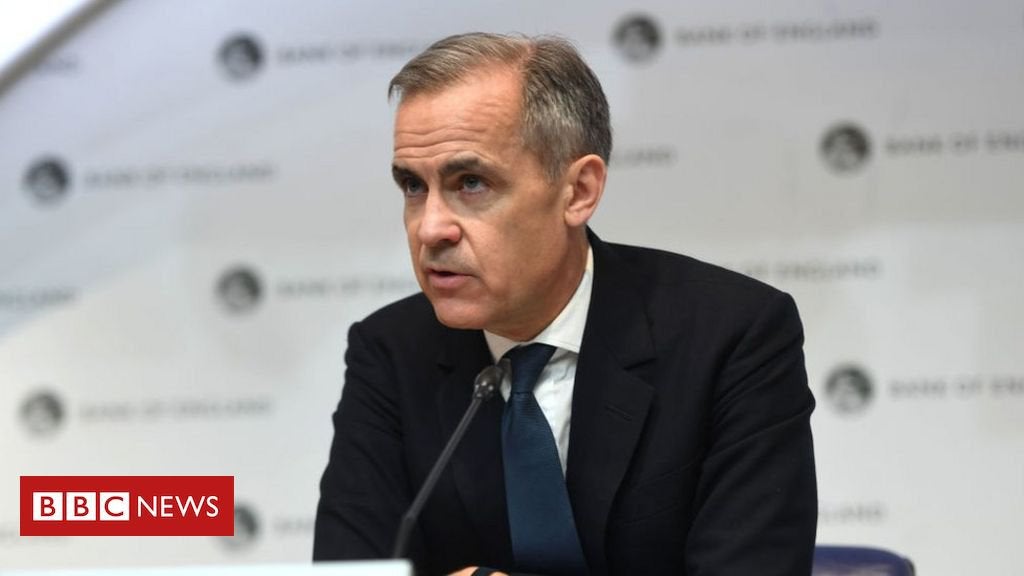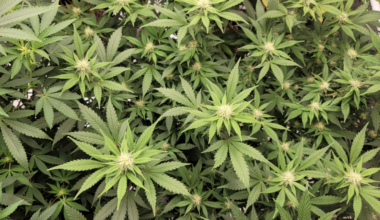Wisconsin voters in at least half a dozen cities and counties will be asked on November’s ballot whether they support legalizing, taxing and regulating cannabis in a manner similar to alcohol.
In recent weeks, local governments in the counties of Dane, Eau Claire and Milwaukee, along with the cities of Appleton, Kenosha and Racine, approved advisory referenda meant to gauge public opinion on legalization. While the results would cause no immediate change in law, they could send a message to state lawmakers about the popularity of marijuana reform with voters.
It’s already widely known that most Wisconsin voters support cannabis legalization. A poll released in March by Marquette Law School found that 61 percent of surveyed voters favored the reform, including a majority of Republicans. In response, Assembly Majority Leader Jim Steineke (R) said legalization was “likely” to happen at some point.
Yet because Wisconsin lacks a statewide initiative process, citizens can’t enact the change themselves. And so far, the GOP-led legislature has failed to advance more modest reforms, such as decriminalization or legalization of medical marijuana.
Multiple cities and counties across the state have strongly approved local, non-binding ballot referendums expressing support for marijuana reform in recent years.
“What we’re trying to do here is show the strength of support,” Dane County Supervisor Aaron Collins said of the local legalization referendum in November, according to The Cap Times. “We know the majority of people in Wisconsin, according to polling, want marijuana legalized.”
In Wisconsin’s Dane County, voters previously approved a series of medical and adult-use legalization questions in 2010, 2014 and 2018 with support ranging from 64.5 percent to 76.4 percent.
A second Dane County referendum will ask whether people previously convicted for simple cannabis possession should have those records expunged. Possession of marijuana alone accounts for 57 percent of all drug arrests in the state, and Collins said that Black people in the county are four times as likely as white people to be arrested on possession charges.
Eau Claire County will also see adult-use legalization as an advisory referendum, according to WQOW. Supervisor Judy Gatlin, who proposed the ballot question, said the reform would help cancer patients and veterans. “Maybe they don’t have a medical card,” she said, “but they know what helps them.”
Supervisors in Milwaukee County, the state’s largest county by population, have also approved an advisory question for November’s ballot, Urban Milwaukee reported. Last year county supervisors passed a measure reducing the fine for possessing small amounts of cannabis to $1 under local law.
At the municipal level, officials in the cities of Appleton, Kenosha and Racine have also approved legalization referenda for November.
Appleton Common Councilmember Israel Del Toro said the votes would send a message to state lawmakers.
“When multiple municipalities act together and voice their collective will of the residents that they are representing, Madison has a responsibility to listen,” Del Toro said, according to the Appleton Post Crescent.
A resolution placing the Kenosha’s referendum on the ballot, approved last week, says legalization “would undercut the illicit market, and insure that marijuana use and sale are regulated and safe,” Kenosha News reported.
“I was hoping that this, if passed in the City of Kenosha with a referendum, would help that process,” said sponsor Alderperson Anthony Kennedy.
In Kenosha County, 88 percent of residents approved of legalization in a 2018 legalization referendum.
In Racine, meanwhile, Alderman CJ Rouse called the vote in November “a litmus test of where our voters are at right now,” according to the Racine Journal Times.
At the county level in 2018, nearly 59 percent of Racine County voters expressed support for legalization in a similar referendum.
Legalization advocates at local NORML chapters have helped promote the referenda and shared sample wording with other supporters.
In Green Bay, meanwhile, the city’s protection and policy committee reportedly rejected a cannabis legalization referendum over concerns by some officials that running the ballot question would cost roughly $15,000 and have no impact on the law. “I think there’s ways that you can vocalize to your legislators for free via email [and] phone calls,” said Alderperson Jennifer Grant. “There’s ways to get loud without costing money.”
Alderperson Craig Stevens said the money could be used to fill potholes instead.
In La Crosse County, supervisors also kept an advisory question off November’s ballot due to cost, according to the La Crosse Tribune.
“It’s silly to spend $5,000 on a referendum that we already know the answer to,” Supervisor Dan Ferries said.
Supervisor Rob Abhraham, who said that he supports legalization, added: “What we should be doing is electing state officials who will do what their constituents want them to do.”
As it stands under Wisconsin law, marijuana possession is punishable by a maximum $1,000 fine and up to six months in jail for a first offense. People convicted of a subsequent offense can face a felony charge punishable by a maximum $10,000 fine and up to three and a half years in prison.
In August of last year, three senators separately filed legislation to legalize cannabis for adult use in the state. In November, a bipartisan pair of legislators introduced a bill to decriminalize low-level marijuana possession. But so far the proposals have stalled in the Republican-controlled statehouse.
Gov. Tony Evers (D) tried to legalize recreational and medical marijuana through his proposed state budget last year, but a GOP-led legislative committee stripped the cannabis language from the legislation. Democrats tried to add the provisions back through an amendment, but Republicans blocked the move.
The governor also recently vetoed a GOP-led bill that would have significantly ramped up criminal penalties for people who use butane or similar fuels to extract marijuana.
Some Republicans filed a limited medical cannabis bill this year—and it got a hearing on the unofficial marijuana holiday 4/20, but that came too late in the legislative session for lawmakers to actually vote on the measure.
Other Republican lawmakers have filed bills to more modestly decriminalize marijuana possession in the state, but none of those proposals advanced during last year’s session.
Evers held a virtual town hall event last year where he discussed his cannabis proposal, emphasizing that polling demonstrates that Wisconsin residents back the policy change.
Cannabis will also feature in local elections in a number of other states this fall. So far, activists in municipalities in Texas, Ohio and West Virginia are working to put measures on the ballot to decriminalize cannabis possession locally—with some of those proposals having already qualified. And unlike in Wisconsin, those votes could make a legal impact: While possession would still be classified as a misdemeanor in many cases, it would carry no monetary penalties or jail time.
Meanwhile, voters across the country may see drug policy reform measures on their statewide November ballots:
Colorado voters will have the chance to decide on a historic ballot initiative this November to legalize psychedelics and create licensed psilocybin “healing centers” where people can use the substance for therapeutic purposes.
In May, South Dakota officials certified that activists turned in a sufficient number of signatures to qualify a marijuana legalization measure for the November ballot.
Maryland lawmakers passed legislation this year, which the governor allowed to go into effect without his signature, that will put the issue of cannabis legalization before voters this November.
In Arkansas, the secretary of state certified that activists turned in more than enough signatures to put a marijuana legalization initiative on the ballot, but a state board is disputing the language of the measure. The case is now before the state Supreme Court.
North Dakota activists turned in what they believe to be enough signatures to place a marijuana legalization initiative before voters.
Oklahoma activists also said they’ve submitted what they believe to be more than enough signatures to qualify a marijuana legalization initiative for the November ballot.
Nebraska advocates recently submitted signatures for a pair of medical cannabis legalization initiatives. The campaign has faced several challenges along the way, including the loss of critical funding after a key donor passed away and a court battle of the state’s geographic requirements for ballot petitions.
A campaign to put cannabis legalization on the Missouri ballot may be in jeopardy, as early reporting shows that activists are coming up short on the required signatures in key districts.
An initiative to legalize marijuana will not appear on Ohio’s November ballot, the campaign behind the measure announced in May. But activists did reach a settlement with state officials in a legal challenge that will give them a chance to hit the ground running in 2023.
Michigan activists announced in June that they will no longer be pursuing a statewide psychedelics legalization ballot initiative for this year’s election and will instead focus on qualifying the measure to go before voters in 2024.
The campaign behind an effort to decriminalize drugs and expand treatment and recovery services in Washington State said in June that it has halted its push to qualify an initiative for November’s ballot.
While Wyoming activists said earlier this year that they made solid progress in collecting signatures for a pair of ballot initiatives to decriminalize marijuana possession and legalize medical cannabis, they didn’t get enough to make the 2022 ballot deadline and will be aiming for 2024 while simultaneously pushing the legislature to advance reform even sooner.
In March, California activists announced that they came up short on collecting enough signatures to qualify a measure to legalize psilocybin mushrooms for the state’s November ballot, though they aren’t giving up on a future election cycle bid.
Meanwhile, there are various local reforms that activists want to see voters decide on this November—including local marijuana decriminalization ordinances in Ohio, West Virginia and Texas.
Photo courtesy of Philip Steffan
Medical Disclaimer:
The information provided in these blog posts is intended for general informational and educational purposes only. It is not a substitute for professional medical advice, diagnosis, or treatment. Always seek the advice of your physician or other qualified healthcare provider with any questions you may have regarding a medical condition. The use of any information provided in these blog posts is solely at your own risk. The authors and the website do not recommend or endorse any specific products, treatments, or procedures mentioned. Reliance on any information in these blog posts is solely at your own discretion.







